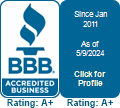Dallas, TX Individual Health Insurance
BlueCross BlueShield of Texas Cancer
Plan United Health Care Plans Dental
Insurance

When shopping for affordable health insurance in Dallas TX, the Thumann Agency is here to help! We can find a health insurance policy that makes sense for your family and your budget. As an independent insurance agency, we specialize in customized, individual health insurance. Our experienced agents can compare plans from multiple companies to find the best policy that fits you with rates you can afford.
What You Need to Know ABout Individual Health Insurance Coverage in Texas:
Health Insurance Options Dallas, Texas
There are two types of Individual Health Insurance plans in Texas: Indemnity plans (fee-for-services) or Managed Care plans. The differences between the two include your choice of providers, out-of-pocket expenses for your covered services, and how your medical bills are paid.
Depending on you and your family's health care needs, one plan may be a better fit over another. It is important to remember that no one plan will pay for all the costs associated with your medical care. Our experienced health insurance agents can help you determine which plan has the best coverage for your needs.
It would help if you had a basic understanding of the different types of Individual Health Insurance plans available to you in Texas. They include Indemnity Plans, Managed Care Options, and Government-Sponsored Health Insurance.
Indemnity Plans
Cafeteria or Flexible Spending Plans are employer-sponsored insurance plans that allow them to design their custom employee benefits package. Employees can typically choose between one or more employee benefits and cash. Employers use several types of Flexible Spending Plans. These include pre-tax conversion plans, multiple option pre-tax conversion plans, medical plans plus flexible spending accounts, and employee credit cafeteria plans. For more information about which of these would be the best fit for you, contact your employee benefits department.
Indemnity Health Plans allow you to choose your health care providers. You can go to any doctor, hospital, or other medical providers for a set monthly premium. This type of plan reimburses you or your health care provider by services rendered. You may be required to meet a deductible and pay a percentage of each bill. However, there is also often an annual limit on out-of-pocket expenses. This means that once an individual or family reaches their limit, the insurance policy covers the remaining eligible medical costs in full. Indemnity Health Plans sometimes impose restrictions on covered services and may require prior authorization for hospital care or other expensive services.
"Basic and Essential" Health Plans provide limited health insurance benefits at a considerably lower cost. When buying this type of plan, it is imperative to read the policy description carefully. Most basic plans don't cover specific treatments, such as chemotherapy, certain kinds of prescriptions, and maternity care. Rates can vary considerably with Basic or Essential Health Plans because premiums are community-rated and are based on age, gender, health status, occupation, and geographic location.
Health Savings Accounts (HSA) are a recent alternative to traditional health insurance plans. HSAs are a savings product designed to offer individuals a different way to pay for their health care. HSAs enable you to pay for current health expenses and save for future qualified medical and retiree health expenses on a tax-free basis. Instead of paying a traditional premium, you establish a tax-free savings account covering your out-of-pocket medical expenses. This means that you own and control the money in your HSA. You make all of the decisions about how to spend your money without relying on a third party or a health insurance company. You can also decide what types of investments to make with the money in your account. You should be aware that if you sign up for an HSA, you must buy a High Deductible Health Plan.
High-Deductible Health Plans (HDHP) are sometimes referred to as "catastrophic health insurance coverage." An HDHP is an inexpensive health insurance plan that kicks in only after a high deductible is met of at least $1,000 for an individual or $2,000 for a family.
Managed Care Options
Health Maintenance Organizations (HMOs) offer access to an extensive network of participating physicians, hospitals, and other health care professionals and facilities. You choose a primary care doctor from a list provided by the HMO, and this doctor coordinates your health care. You must contact your primary care doctor to be referred to a specialist. Generally, you pay fewer out-of-pocket expenses with an HMO, but you are often charged a fee or co-payment for services such as doctor visits or prescriptions.
Point-of-Service (POS) plans are an indemnity-type option in which the primary care doctors in the POS plan usually make referrals to other providers within the plan. If a doctor makes a referral out of the plan, the plan pays all or most bills. However, if you refer yourself to an outside provider, the service is covered by the plan, but you will be required to pay co-insurance.
Preferred Provider Organizations (PPO) charge on a fee-for-service basis. The insurer pays the participating doctors, hospitals, and health care providers on a negotiated, discounted fee schedule. Costs are lower if you use in-network healthcare services, but you have the option of going out-of-network. If you choose an out-of-network provider, you are generally required to pay the difference between what the provider charges and what the plan pays.
Government-sponsored Health Insurance Medicaid is a federal/state public assistance program created in 1965. The states administer it for people whose income and resources are insufficient to pay for health care or private insurance. All states have Medicaid programs, though eligibility levels and coverage benefits vary.
Medicare is a federal government program for people 65 and older, or those with specific disabilities that pays part of the costs associated with hospitalization, surgery, doctors' bills, home health care, and skilled-nursing care.
State Children's Health Insurance Program (SCHIP) is administered at the state level and provides health care to low-income children whose parents do not qualify for Medicaid. Different names in different states may know SCHIP.
Military Health Care includes TRICARE/CHAMPUS (Civilian Health and Medical Program of the Uniformed Services) and CHAMPVA (Civilian Health and Medical Program of the Department of Veterans Affairs) as well as care provided by the Department of Veterans Affairs (VA).
State-specific Plans are available for low-income, uninsured individuals. Different names in different states know these plans.
Indian Health Service (IHS) is a Department of Health and Human Services program offering medical assistance to eligible American Indians at HIS facilities. Also, the HIS helps pay the cost of selected health care services provided at non-HIS facilities.
Texas State Health Resources
In the state of Texas, there are a wide variety of health resources available to you through state-run websites. The Texas Department of Insurance has many articles and other areas of information available to you to peruse and determine the proper route for your insurance coverage.
Texas also has the Department of State Health Services, where you can find reports, statistics, resources, and other integral information for your insurance-making decisions. Healthcare.gov will also be your primary location to find the plans and coverages offered to Texas residents through the Affordable Care Act insurance marketplace.
Texas Medical Insurance Statistics
As of 2018, health insurance coverage of the total population of Texas was provided primarily by employers (47%). When the statistic covers only those aged 0-64 (excluding the elderly), the insurance coverage rate increases to 53% provided by employers. The rest of the coverage is provided by non-group insurance (6% (total) / 7% (non-elderly)), Medicaid (17% (total) / 17% (non-elderly)), Medicare (10% (total)), and other public insurance (2% (total) / 3% (non-elderly)). Those who lack insurance make up 18% of the total population and 20% excluding the elderly.
Compared to the rest of the United States, Texas's total uninsured population is 18%, which is double the national average of 9%. If the elderly are removed from the statistics, uninsured adults (19-64) come in at 24% compared to the national average of 13%.
Does Texas Require You to Have Health Insurance?
The Affordable Care Act (Obamacare) is still technically in effect, and it requires every United States citizen to have health insurance. However, the federal tax penalty, which came with that mandate, has been eliminated. You will still have to report your tax coverage on your federal tax return, but you will not suffer a penalty if you do not have coverage.
In some states, health insurance requirements have been passed that may change the penalties if you do not have the minimum essential coverage (MEC) as demanded by the Affordable Care Act. Texas, though, is not one of these states.
How Much Does Health Insurance Cost in Texas?
Various factors will be considered when it comes to the cost of insurance plans in Texas. On average, though, Texas residents can expect to pay an average of $221 for the basic major medical individual health insurance plan. Prices of plans may change depending on where you reside in Texas and personal factors, including age, gender, and overall health.
If your employer provides you with healthcare coverage, the amount you pay into will depend on the employer and your company's health plan. Discuss your employer's options as you are generally not obligated to enroll in their healthcare coverage and choose to find an independent healthcare provider.
What Is Individual Health Insurance?
Individuals or families seek out an individual health insurance plan through independent healthcare providers or the Affordable Care Act marketplace rather than enrolling in an employer-offered program or one provided by the government such as Medicare or Medicaid. These individual health insurance plans can range widely in price and overall coverage, and Texas residents can choose what type of coverage is best for their needs and their budget and income.
Who Offers Individual Health Insurance in Texas?
Several private companies sell health plans for individuals who require healthcare coverage. These companies include:
-
Blue Cross Blue Shield of Texas
-
Celtic Insurance Company
-
CHRISTUS Health Plan
-
Community Health Choice, Inc.
-
Insurance Company of Scott and White
-
Molina Healthcare of Texas, Inc.
-
Oscar Insurance Company of Texas
-
Scott and White Health Plan
-
Sendero Health Plans, Inc.
-
SHA, LLC (dba FirstCare)
If your employer or school provides you with healthcare plan options, you are not obligated to enroll in them and can seek out your independent healthcare provider, such as these listed above. You can also search through plans on the Affordable Care Act marketplace available at healthcare.gov to see what all of your options are.
Can I Cancel My Individual Health Insurance at Any Time?
In most instances, you can cancel your health insurance plan without facing additional charges or cancellation fees. However, you need to examine your particular plan and determine what the process is. It is also essential to consider why you are canceling the insurance (new employer coverage, better plan options, etc.) and if you will be facing the more difficult possibility of having to deal with a significant medical issue without insurance. The financial burden of hospital bills, prescription drugs, doctor visits, surgery, and more can be detrimental to your livelihood and quality of life.
How Do You Get Health Insurance in Texas?
Under the Affordable Care Act, the government created health insurance marketplaces for each state to find the coverage they need. In Texas, the marketplace is healthcare.gov, and you can visit that site to compare healthcare plans, find out whether or not you qualify for cost-saving subsidies, and sign up for the plan that best suits your individual needs.
There are various plans available with different deductibles and premiums, so you must take time to investigate all of your options (making sure the option you choose meets the minimum essential coverage) and making the most informed decision you can.
If you need health insurance coverage in Texas, request a quote! We also offer group health insurance in Texas. Learn more about our team and contact us today online or give us a call at (972) 991-9100.
Have Questions? Give us a call!
Additional Resources













